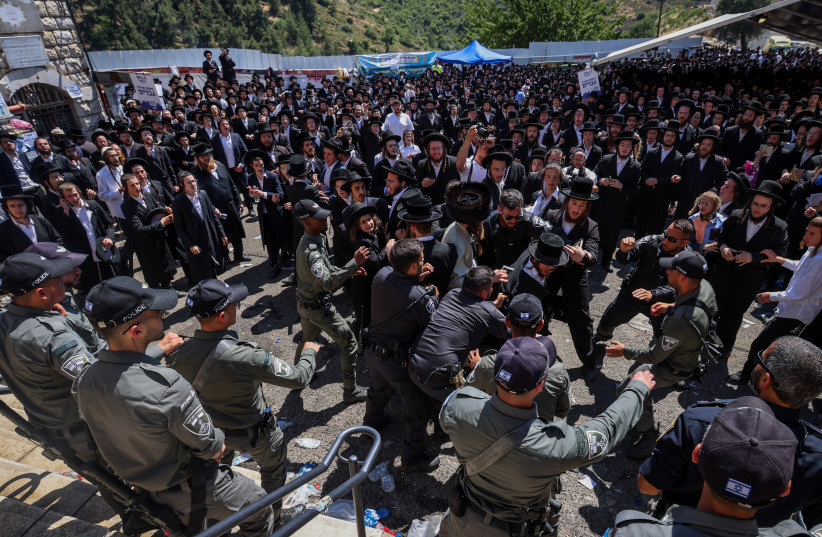A couple of days after the horrific Mount Meron stampede on Lag Ba’omer last year that resulted in the death of 45 people, we editorialized about the importance of establishing a state commission of inquiry to probe the events and failings by decision-makers that led to the disaster.
As we wrote then, “This is not the first year that warning signs were flashing. Warnings existed, in print, for more than a decade. Two State Comptroller Reports, in 2008 and 2010, had pointed out the safety deficiencies at the site.... The infrastructure was not built for even tens of thousands of visitors at a time.”
We also wrote, “A state commission of inquiry has a broad mandate to investigate on a systemic level what happened to allow the Mount Meron tragedy to occur. Learning from the disaster is essential. Nothing can bring back those who died but the state does have to do everything to make sure – as much as is possible – that these senseless tragedies don’t happen again. That is why appointing a state commission of inquiry chaired by a Supreme Court justice is the only correct decision.”
Steps forward
Thankfully, a commission was formed, headed by former chief justice Miriam Naor (upon her death earlier this year, she was replaced by former Tel Aviv District Court president Devorah Berliner). Much of their yearlong inquiry revolved around failures by engineers, religious-services and police officials involved to ensure that the structures around Meron were safe and the site was not overwhelmed.

They also heard testimony from the upper echelon of government and police officials, including then-prime minister Benjamin Netanyahu, former public security minister Amir Ohana, interior minister Arye Deri and current Israel Police Commissioner Kobi Shabtai.
On Tuesday, the commission issued letters warning of negligence and legal wrongdoing to Netanyahu, Ohana, Shabtai, as well as to former religious services minister Ya’akov Avitan and several other police, government and safety officials.
In a normative country, a tragedy of the Meron disaster’s magnitude and the resultant investigation that led to the warning letter being issued would have been more than enough for those fingered to either resign. At the very least, it would have been enough for them to express remorse and apologize profusely to the victims’ families.
Israel's journey to normativity
But apparently, Israel still has a ways to go to become normative. Instead of taking one of those two actions, Netanyahu’s Likud Party acted as his mouthpiece and attempted to turn the findings into a political witch hunt.
“Since the country was established, no state commission of inquiry sent warning letters to political candidates during the election period,” it said. “It is sad that the committee of investigation, which was established on the Bennett-Lapid government’s initiative, chose to do so.”
It’s a mode of attack familiar to Netanyahu, who during his current criminal trial has taken on both the police and the courts in “Us vs Them” populist attempts to generate popular dissent against the country’s institutions.
As The Jerusalem Post’s Yonah Jeremy Bob noted, commissions of inquiries do not control when politicians decide on early elections. Had Naor not died, the findings might have been released months earlier. To accuse the commission of being in cahoots with the current government to release the damning report ahead of the elections is ridiculous.
Unfortunately, as Tovah Lazaroff wrote on Tuesday, that transparent effort to portray himself as being pursued by a corrupt and politicized legal system will likely benefit Netanyahu with his core base.
If it was only Netanyahu deflecting responsibility for the Meron debacle, it could be chalked up to a character flaw. However, he’s not the only one. Despite his signature on the police forms allowing the Meron festivities to take place, Shabtai said on Tuesday that he had no intention of resigning. Through his lawyers, he added that the inquiry would ultimately place the blame on a variety of other government agencies that were also warned.
It’s reminiscent of Ohana’s statement soon after the disaster, when he said he bore overall responsibility, “but responsibility does not mean blame.”
More than a year after 45 families lost loved ones on Mount Meron, there is still nobody able to stand up and say, “I’m sorry, I was partially to blame.”
